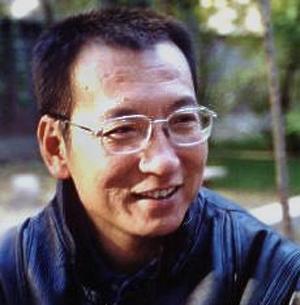Tibetan Monk Self-Immolates
/Ayanna Nahmias, Editor-in-ChiefLast Modified: 16:24 PM EDT, 16 February 2012
LOBSANG GYATSO, Tibet - A 19-year-old monk from the Kirti monastery set himself ablaze on the main street, according to the London-based International Campaign for Tibet (ICT). Security forces beat Gyatso while extinguishing the flames, then took him away, the group said in an online statement posted late Monday. It was not immediately clear whether he survived.
Tibetan’s are a deeply religious and independent culture. The annexation of the country, forced resettlement, plus the exile of one of its most revered figure, the Dalai Lama has sparked intense resistance . Many monks remain fiercely loyal to Tibet's exiled Buddhist leader, who fled the Himalayan region in 1959 amid an abortive uprising against Chinese rule.
[youtube=http://www.youtube.com/watch?v=EASprHOwZ48&feature=related]
China's tacit acceptance of the country's religious fervor does not negate the fact that the Tibetan people have expressed feelings of oppression from and domination by the invading Chinese. Out of fear of reprisal many Tibetans, including the man who was interviewed in 2008 by Michael Palin, will only publicly state that they have experienced no problems with their assimilation into Chinese society and culture.
Tibet is governed by China as an autonomous region and the territories of Lhasa and Yushu were featured prominently in Palin’s documentary “The Roof of the World.” The rich culture depicted in the documentary seems quite different from that of the Chinese. From this perspective, it is not surprising that this clash of cultures would result in an escalation of the number and kinds protests that dissidents would engage in to capture the world’s attention and highlight the human rights abuses that occur in Tibet on a daily basis.
Self-immolation is one of the most extreme forms of civil protest, second only in my opinion to a hunger strike. The case of the Tibetan monk setting himself on fire is reminiscent of another monk who burned himself to death in protest of the persecution of Buddhists by South Vietnam’s Roman Catholic government.
His name was Thích Quảng Đức and the photos of his self-immolation are burned into the psyche of anyone born in the 60’s. His self-sacrifice brought attention to the repressive policies of the Diệm regime. Malcolm Browne won a Pulitzer Prize for his renowned photograph of the monk's death.”(Source: Wikipedia)
Premier Wen Jiabao on Tuesday, 14 February 2012, stated that with regard to China's policies on Tibet, they respect the Tibetans traditional culture and freedom of religious belief. He further cast aspersions on the monk by stating that "in his opinion this monk and others like him are being manipulated by outside nations to incite the populace and destabilize the country."
Group: Tibetan sets herself on fire in protest
It would appear, based upon China’s response to this deadly incident that the officials view this movement as economic sabotage. China has invested a great deal in the infrastructure of Tibet, including building new dams, roads and communications networks. According to a CBS reporter who recently visited, he claimed that cellular service was better there than in America.
The Chinese government views these improvements as a benefit to Tibetans, but in reality the continued development encroaches on the nomadic, peaceful and spiritual lives of the Tibetans. Like the Native Americans, the Tibetans are facing the loss of their autonomy and culture through the imposition of the English and Chinese languages, habiliment and atheism.
Premiere Wen was quoted as saying, "Any attempt to incite a small number of monks to take radical moves to undermine stability in the Tibet Autonomous Region is not in the interest of development in Tibet or the interests of the people living in Tibet. Such attempts can have no popular support." He delivered this pronouncement to reporters at a joint press conference with visiting leaders from the European Union.
It is interesting that he used the imperative when stating that this movement “can have no” popular support. His words connoted a subtle but implied threat to any Tibetan who would seek to embarrass or otherwise demonstrate dissatisfaction with Chinese rule. Much of the recent unrest has occurred in adjoining provinces with large Tibetan populations, particularly Sichuan.
According to ICT, 20 Tibetan monks, nuns and laypeople have set themselves on fire in China over the past year, with at least 13 dying from their injuries. These self-immolations have occurred with increasing frequency in recent weeks, and most have taken place in Sichuan's remote and mountainous Tibetan areas.
Independent verification of the true status of these anti-Chinese dissidents is unknown since Western reporters trying to visit that part of Sichuan have been turned away by security forces.
Related articles
China appoints new head of restive Tibetan area (thehimalayantimes.com)
AP Interview: Tibetan exile warns of crackdown (cbsnews.com)
Two Tibetans shot dead, another self-immolation, as China's dissent crackdown continues (boingboing.net)
China Unrest: Tibetan Monk Sets Himself on Fire (ibtimes.com)















